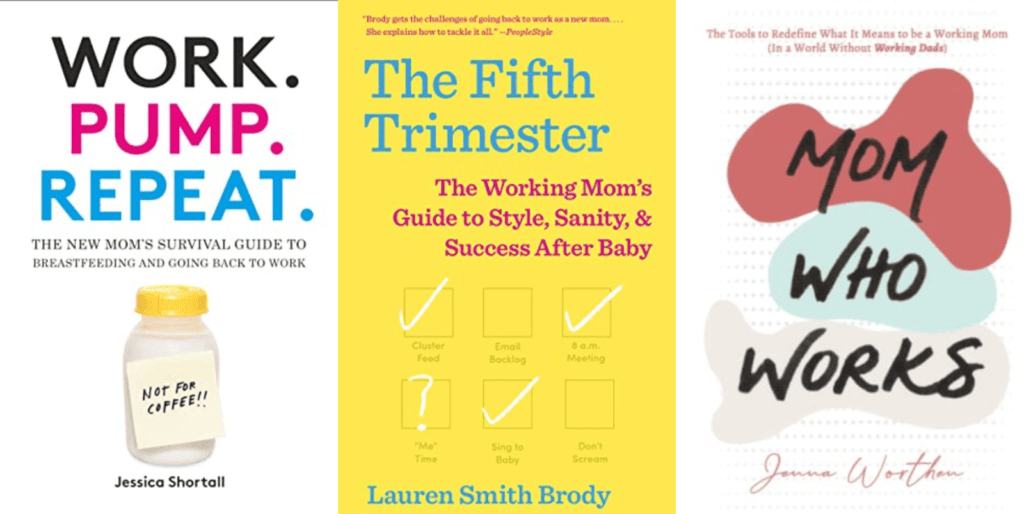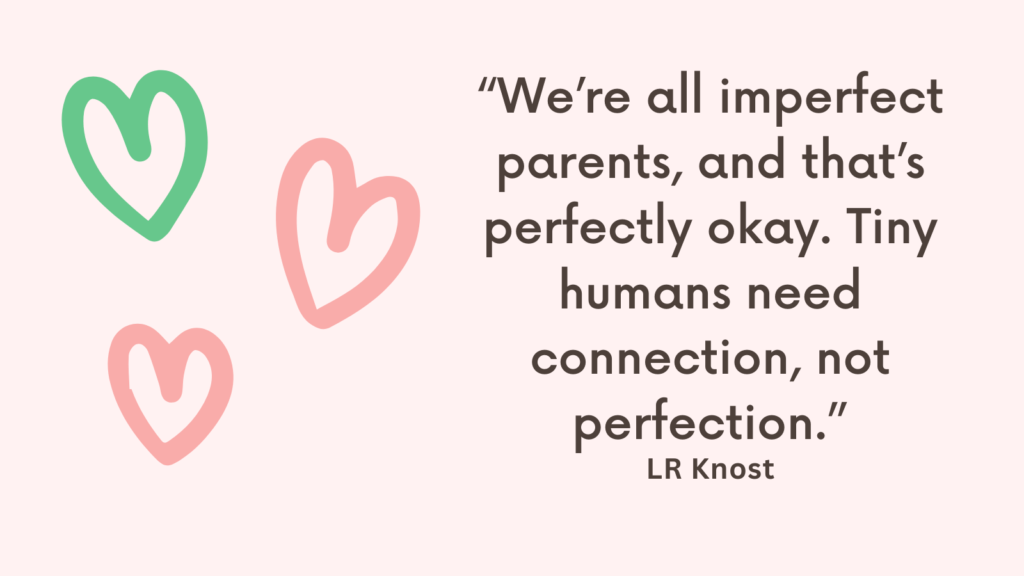In this post, you’re going to learn how to overcome working mom guilt.
What Is Working Mom Guilt?
Working mom guilt refers to the feelings of guilt and self-doubt experienced by mothers who balance both their professional careers and their responsibilities as parents.
It is a common phenomenon among working mothers who often feel torn between their work commitments and spending quality time with their children.
Working mom guilt can stem from societal expectations, personal beliefs, and the fear of not being able to meet the perceived standards of being a “good” mother.
This guilt often arises due to the perception that mothers should prioritize their children above all else.
It can lead to feelings of inadequacy, anxiety, and a sense of failure in both the workplace and in parenting.
However, it’s important to recognize that working mom guilt is a subjective experience and can vary from person to person.
How to Overcome Working Mom Guilt?
Working mom guilt is a common and understandable emotion experienced by many mothers who juggle the dual responsibilities of work and parenting.
While it may be challenging to completely eliminate working mom guilt, there are strategies that can help you manage and overcome these feelings.
1. Acknowledge and validate your emotions
It is important to recognize that working mom guilt is a normal reaction to the competing demands of work and family.
Give yourself permission to feel the guilt without judgment.
Remind yourself that you are doing the best you can in providing for your family.
Related: Stay At Home Mom Schedule (+Free Printables)
2. Challenge your beliefs and expectations
Reflect on societal and personal expectations that contribute to your guilt.
Recognize that being a working mom does not make you any less of a loving and caring parent.
Challenge the belief that quantity of time spent with your child is more important than the quality of the time you have together.
Remember that contributing to your child’s well-being financially and modeling work ethic are valuable aspects of parenting.
3. Focus on the positives
Shift your focus from what you might be missing out on to the positive aspects of being a working mom.
Consider the financial stability and opportunities you provide for your child through your career.
Recognize that you are demonstrating the importance of pursuing passions, achieving goals, and balancing multiple roles.
Related: Top 19 Hobbies for Stay at Home Moms
4. Prioritize and set boundaries
Determine your priorities and establish clear boundaries between work and family life.
This includes organizing your time effectively, setting realistic expectations for yourself, and avoiding overcommitment.
By establishing clear boundaries, you can be present and fully engaged in both your work and your family life without feeling overwhelmed.
5. Quality over quantity
Instead of fixating on the amount of time you spend with your child, focus on making the most of the time you do have together.
Engage in meaningful interactions, such as sharing meals, having quality conversations, or engaging in activities that create lasting memories.
Cherish the moments and make them count.
6. Delegate and ask for help
Recognize that you cannot do everything alone.
Delegate tasks and share responsibilities with your partner, family members, or trusted caregivers.
Accepting help does not make you a lesser parent but rather demonstrates your ability to effectively manage your resources and prioritize your time.
Related: Best 8 Books For Stay At Home Mom
7. Practice self-care
Self-care is crucial for your well-being, allowing you to show up as the best version of yourself for your child.
Make time for activities that bring you joy and help you relax, whether it’s exercising, reading, pursuing hobbies, or simply taking a break.
Prioritizing self-care will help you recharge, reduce stress, and enhance your overall sense of fulfillment.
8. Cultivate a support network
Surround yourself with other working moms who understand and can relate to your experiences.
Seek support from friends, family, or even online communities of working parents.
Sharing your challenges, exchanging advice, and finding solace in a supportive network can help alleviate feelings of guilt and provide valuable insights and encouragement.
Related: Best 12 Meal Planning Tips For Busy Moms
9. Practice mindfulness
Stay present in the moment and be mindful of your thoughts and emotions.
When guilt arises, acknowledge it without judgment and gently redirect your focus to the present.
Mindfulness techniques, such as deep breathing exercises or meditation, can help you stay grounded and reduce feelings of anxiety or guilt.
10. Celebrate small victories
Acknowledge and celebrate your achievements, however big or small.
Recognize the effort you put into balancing your work and family responsibilities.
Give yourself credit for the love, care, and dedication you provide your child. Positive reinforcement can help counteract negative feelings of guilt and boost your self-confidence.
Related: Top 12 Benefits of Stay At Home Mom
11. Keep a gratitude journal
Take a few minutes each day to write down things you’re grateful for as a working mom.
This practice can shift your focus towards the positive aspects of your life and help counteract feelings of guilt.
12. Communicate with your child
Openly communicate with your child about your work and why it is important.
Help them understand that your work allows you to provide for their needs and create a better future for them.
Encourage them to ask questions and express any concerns or emotions they may have.
13. Establish rituals and traditions
Creating special rituals or traditions with your child can help strengthen your bond and create lasting memories.
Whether it’s a weekly movie night, cooking together on weekends, or bedtime stories, these shared activities can help you build a strong connection despite your busy schedule.
Related: How To Invest In Yourself As A Woman? Top 8 Ways
14. Embrace flexibility
Recognize that achieving a perfect work-life balance is often unrealistic.
Embrace flexibility in your schedule and give yourself permission to make adjustments when needed.
Remember, it’s not about being perfect, but rather finding a balance that works for you and your family.
15. Practice self-compassion
Be kind to yourself and practice self-compassion.
Recognize that you are doing your best and that it’s normal to experience conflicting emotions.
Treat yourself with the same kindness and understanding you would offer a friend going through a similar situation.
Related: Best 100 Self-Care Ideas to Try
Conclusion
Remember, every working mom’s journey is unique, and there is no one-size-fits-all solution.
Use these suggestions as starting points and adapt them to fit your personal circumstances.
With time, self-compassion, and a proactive mindset, you can navigate and overcome working mom guilt.
FAQ
Is working mom guilt normal?
Yes, it is normal for many working mothers to experience feelings of guilt due to the challenges of balancing work and family responsibilities.
It’s important to remember that these feelings are common and do not make you a bad parent.
How can I deal with societal pressures and judgments related to being a working mom?
It’s important to challenge societal norms and focus on what works best for you and your family.
Remember that every family is unique, and there is no one-size-fits-all approach to parenting.
Surround yourself with supportive individuals who value your choices and seek out communities that provide positive reinforcement.
Related: Best 18 Self Care Night Ideas
When should I seek professional help for working mom guilt?
If feelings of guilt and self-doubt become overwhelming or start interfering with your daily functioning, it may be helpful to seek support from a mental health professional.
They can provide guidance and help you develop coping strategies tailored to your specific situation.




